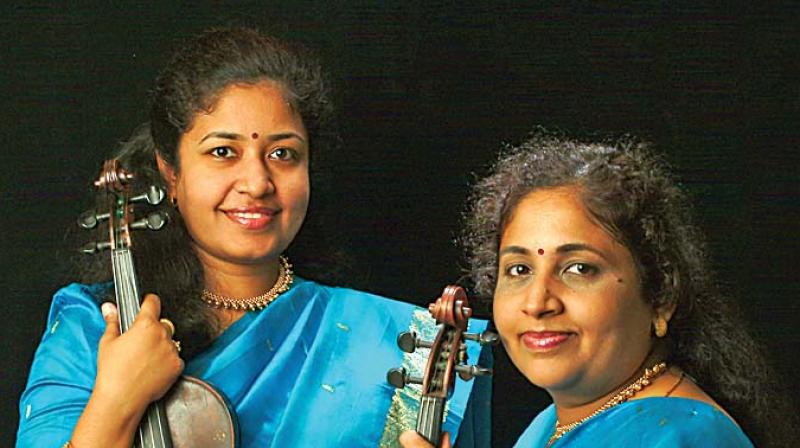Of art and music: Violin sisters owe their success to Guru Sishya Parampara
Dr Lalitha and Nandini, with several honours and titles to their credit, have specialised in the different music styles of the world.

The only violin sisters to perform Indian classical, world music, fusion and Western classical in Asia, Dr Lalitha and Nandini, with several honours and titles to their credit, have specialised in the different music styles of the world, like Chinese, Japanese, Indonesian, African and styles of middle eastern traditional music. In a tete-e-tete, they express their views candidly.
On fusion music:
We believe that, when there is a combination of different styles of music, it gives scope for improvisation and different experimental phrasings. But we are against compromise and adulteration of music under the garb of fusion. We have to tread very carefully, understanding that both systems belong to a composite Indian culture, and identify a common ground or else, all will be confusion.
On western classical music:
We believe that Indian ragas afford tremendous scope for harmonic exploration, and likewise the harmonic depth of western classical music offers immense possibilities.
On the Guru-Sishya Parampara system:
We had in-house training from our grandfather, violinist Lakshminarayana Iyer and mother Subbulakshmi. This helped us to learn the finer and subtle aspects of music and gave us the inner strength to carry the musical tradition forward in the Guru-Sishya parampara system.
On classical discipline:
Music is uniquely ephemeral yet tangibly emotional and stirs the mind, the contemplative quality flowing with music. The classical discipline calls for a deeper felicity which needs to undergo a constant process of polishing, refinement and beautification.
On the bhakthi aspect of music:
To express the range of emotions in a kriti, devotion to music is as important as belief in God. This imparts an extra flavour, exemplifying the fact that it is not human art, but divine grace which manifests through music.
On their spiritual journey:
Music for us is not a mere vocation but a means of self-fulfilment with an eternal quest for excellence.

